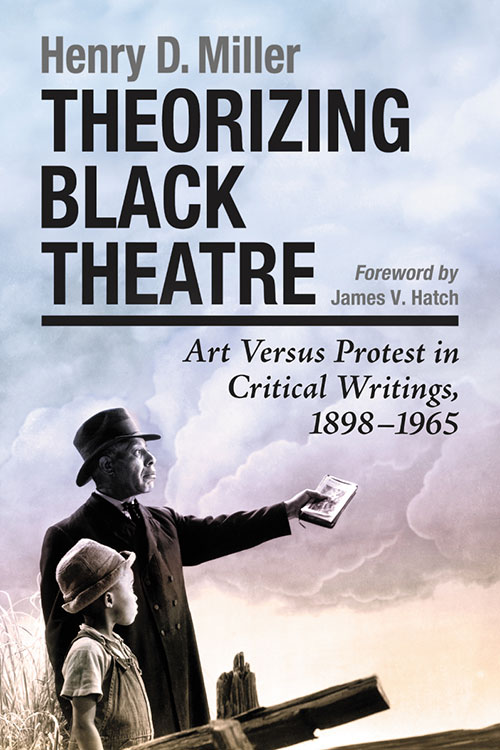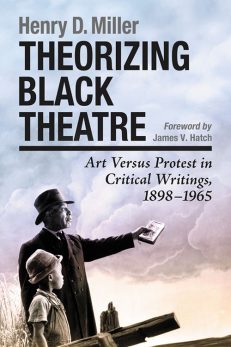Theorizing Black Theatre
Art Versus Protest in Critical Writings, 1898–1965
$39.95
In stock
About the Book
The rich history of African-American theatre has often been overlooked, both in theoretical discourse and in practice. This volume seeks a critical engagement with black theatre artists and theorists of the twentieth century. It reveals a comprehensive view of the Art or Propaganda debate that dominated twentieth century African-American dramatic theory. Among others, this text addresses the writings of Langston Hughes, W.E.B. DuBois, Alain Locke, Lorraine Hansberry, Amiri Baraka, Adrienne Kennedy, Sidney Poitier, and August Wilson. Of particular note is the manner in which black theory collides or intersects with canonical theorists, including Aristotle, Keats, Ibsen, Nietzsche, Shaw, and O’Neill.
About the Author(s)
Bibliographic Details
Henry D. Miller
Format: softcover (6 x 9)
Pages: 284
Bibliographic Info: notes, bibliography, index
Copyright Date: 2011
pISBN: 978-0-7864-5937-7
eISBN: 978-0-7864-6014-4
Imprint: McFarland
Table of Contents
Acknowledgments viii
Foreword by James V. Hatch 1
Preface 3
Introduction 7
I. The Dawn of Black Dramatic Theory and the Art or Propaganda Debate Goes Public, 1898–1916 21
II. “The New Negro” and the High Harlem Renaissance: Core of 20th Century Black Dramatic Theory, 1917–1929 51
III. Black Theory in the Great Depression and Beyond, 1930–1949, Part I 86
IV. Black Theory in the Great Depression and Beyond, 1930–1949, Part II 117
V. Civil Rights vs. Integration and the Persistence of Art-Theatre Drama, 1950–1959 140
VI. The Rise of Black Arts Theory and the Persistence of Art-Theatre Drama, 1960–1965 179
VII. Back to the Future: Conclusion 217
Chapter Notes 235
Bibliography 253
Index 267
Book Reviews & Awards
• “Theorizing Black Theatre is the kind of book that you keep in your backpack and take out on the subway with pen in hand so you can take notes. Every couple of pages you will go over enough material to constitute an undergrad course in African American theatre and dramaturgy. Miller gives us a whole new look at our country and begins to undo the damage that segregation has done to our historical perspective”—African American Playwrights Exchange
• “This book can be rightfully described as a milestone…deserves a place in every library, academic to public”—Broadside





